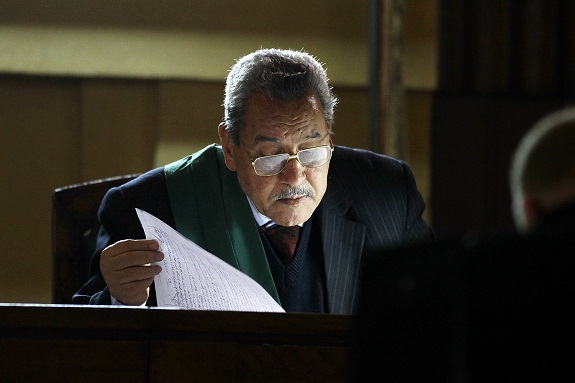JAKARTA: Indonesia is defined as a free state – essentially, a country that protects the civil and political rights of its citizens – by Freedom House’s “Map of Freedom in the World 2009. Yet, according to the “2009 Annual Report on International Religious Freedom by the US Department of State, Indonesia’s track record on freedom of religion and human rights is still problematic.
One of the challenges that Indonesia faces in advancing its religious freedoms is the emergence of religious groups, such as the Islamic Defender Front (FPI) and the Indonesian Mujaheed Council (MMI), that use violence to promote their religious ideas, sometimes taking it upon themselves to act in place of the police or the judiciary. While the members of these organizations comprise not more than five percent of the over 250 million Indonesians, their aggressive behavior has been creating tension in the country.
Believing that it is incumbent upon them to advocate righteousness and forbid evil (Quran 9:71), these groups have often ransacked bars; prevented music concerts and art exhibitions from taking place through street protests; sabotaged film screenings and book launchings; and attacked churches and offices of groups whose religious beliefs they challenge.
For example, On August 27, 2008, hundreds of FPI members threatened Ahmadiyya congregants (Muslims that believe the second advent of Christ has been fulfilled) of Al Mubarak mosque in South Jakarta to cease their activities before the month of Ramadan. And on August 10, 2009, some FPI members raided a salon in Yogyakarta that they suspected of providing illegal sexual services.
These Muslims believe that they are obliged to forbid evil because the Quran suggests that there should be “a community . who invite[s] to what is good, advocate[s] righteousness, and forbid[s] evil (Quran 3:104). The Prophet Mohamed also encouraged Muslims to take every effort to put right any wrongdoing, which some people interpret to be anything that is not compliant with Islamic teachings, such as the consumption of alcohol.
Some Muslims view these verses as suggestions that there should be a group that urges Muslims to observe religious teachings and prevents them from violating religious tenets. Some even go so far as to feel that violence is necessary to carry out this mission, which of course is problematic in a constitutional state.
In the past, repression has been used by the state to control these groups. Former President Suharto, who ruled Indonesia for more than 30 years, from 1966 to 1998, used repressive measures to control and prevent the emergence of such groups, prohibiting the establishment of any religious groups or efforts to mobilize the general public.
True, such policy can reduce the incidents of violent acts by non-government actors, however, arbitrary repression runs contrary to democratic principles and can also restrict the actions of moderate Muslims working in peaceful ways. After all, restrictions on organization and social mobilization also apply to moderate groups.
The current government of Indonesia has yet to identify the most effective means to respond to groups that appoint themselves as vice and virtue squads. However, the court’s decision on October 2008 to sentence FPI leader Rizieq Shihab to 18 months in jail for his organization’s violent attack against the National Alliance for the Freedom of Religion and Belief, a loose network of NGO activists who staged a rally in support of the Ahmadiyya community in June 2008, has left people hopeful that the government intends to stop instances of arbitrary violence.
Such a move is important to deter any group from using violence in advocating their cause. The government should continue to uphold the rule of law in dealing with such groups, including using its constitutional authority to review Shariah-based regulations (based on Islamic principles) that are passed in a number of Indonesia’s provinces, and that some violent actors use to justify their actions.
While it may be a long wait before these groups reinterpret their doctrine to fit better under the spirit of democracy and freedom of religion in Indonesia, there have been some Muslim organizations, like the Ma’arif and Wahid institutes, that observe this obligation-to advocate righteousness, and forbid evil-by encouraging harmony between religious communities, promoting good governance and the protection of human rights.
Most Indonesians have high expectations that their democratically elected government will prove that democracy does not stand for criminal behavior or the end of civil liberties. They also expect more Muslim organizations to put their best efforts forward to support democracy, good governance, corruption and poverty eradication, interfaith dialogue and public safety.
Novriantoni Kaharis a lecturer of Islamic Studies in Paramadina University and Programme Manager at the Liberal Islam Network in Jakarta. This article is part of a series on the myth that Islam is inherently violent written for the Common Ground News Service (CGNews).
